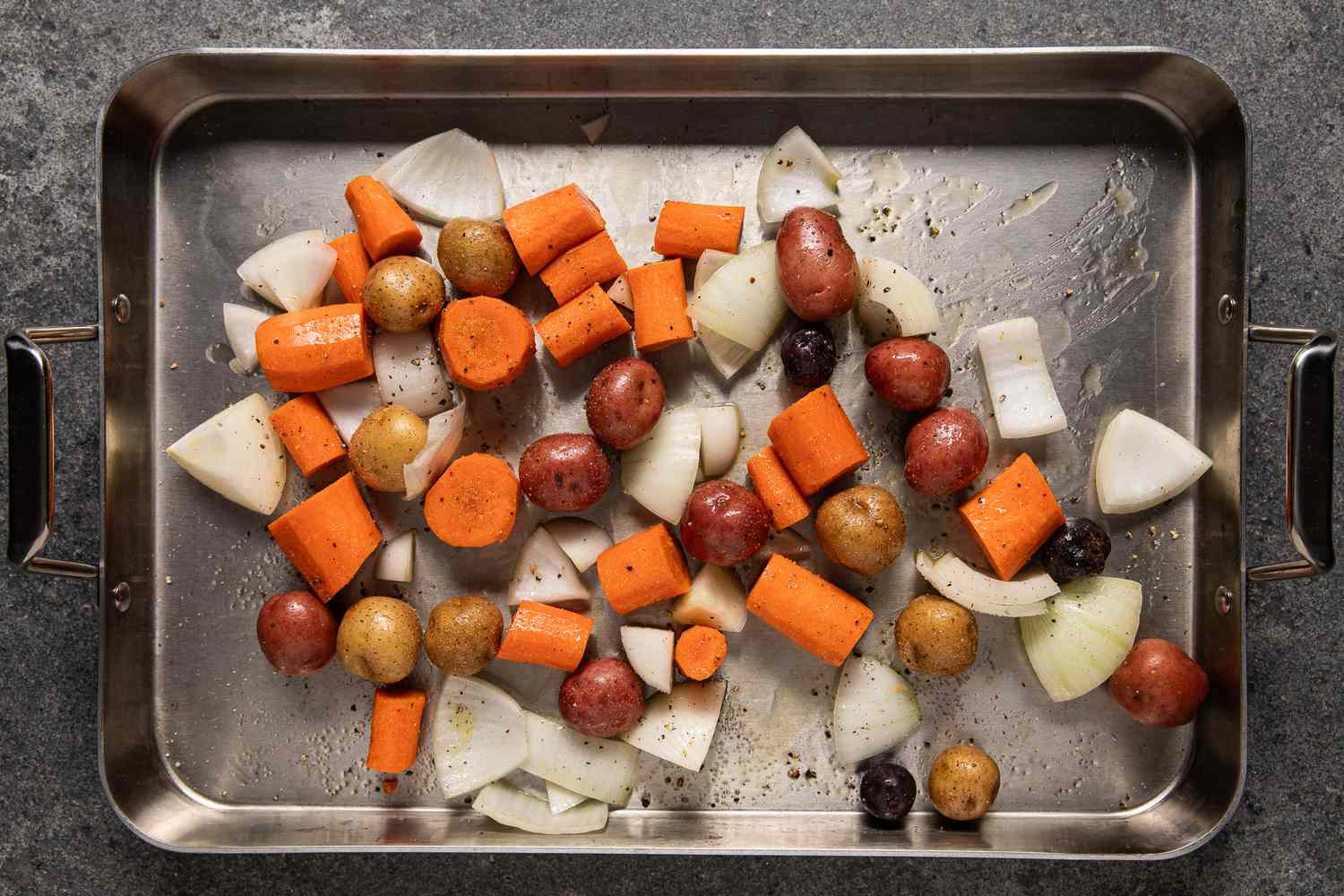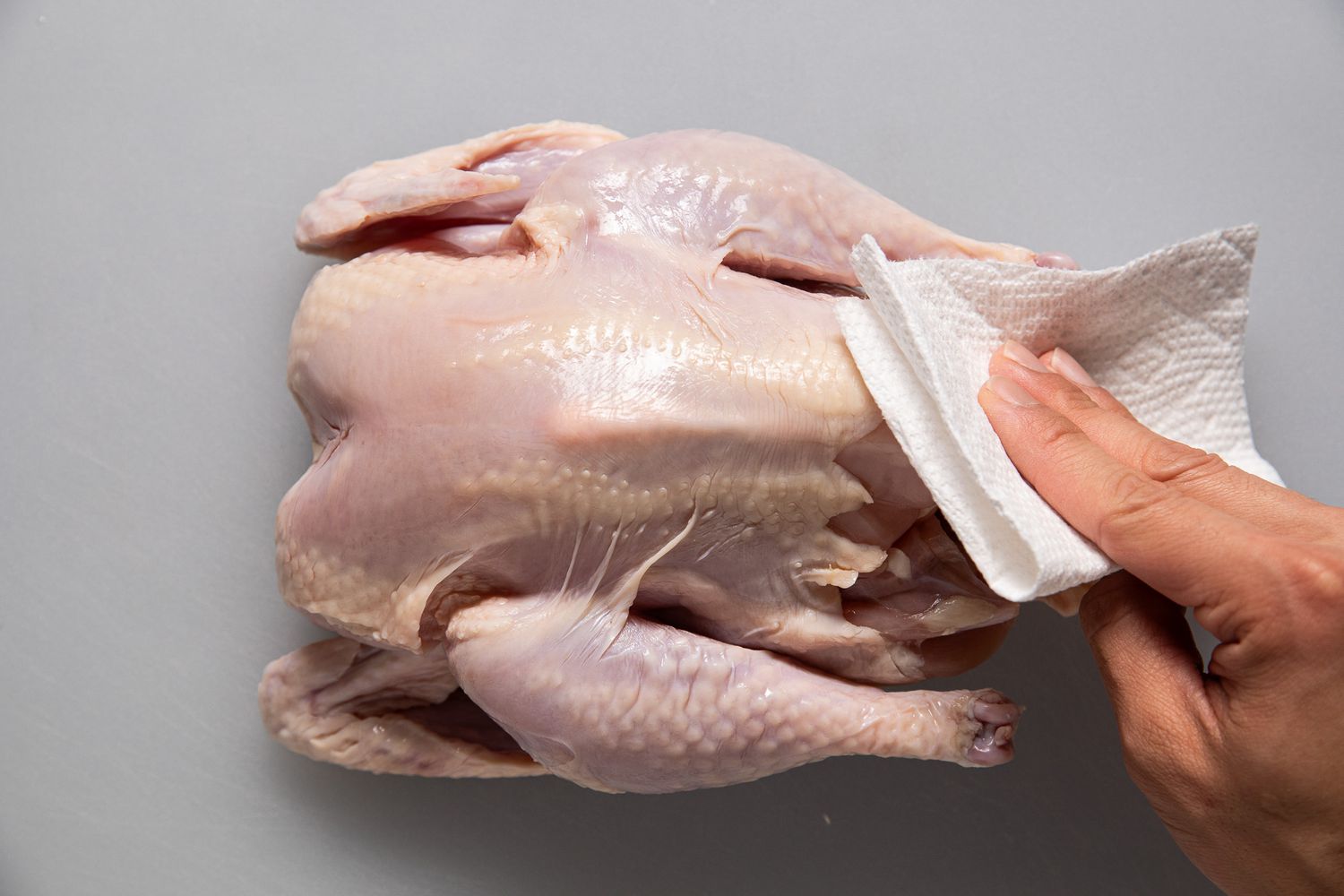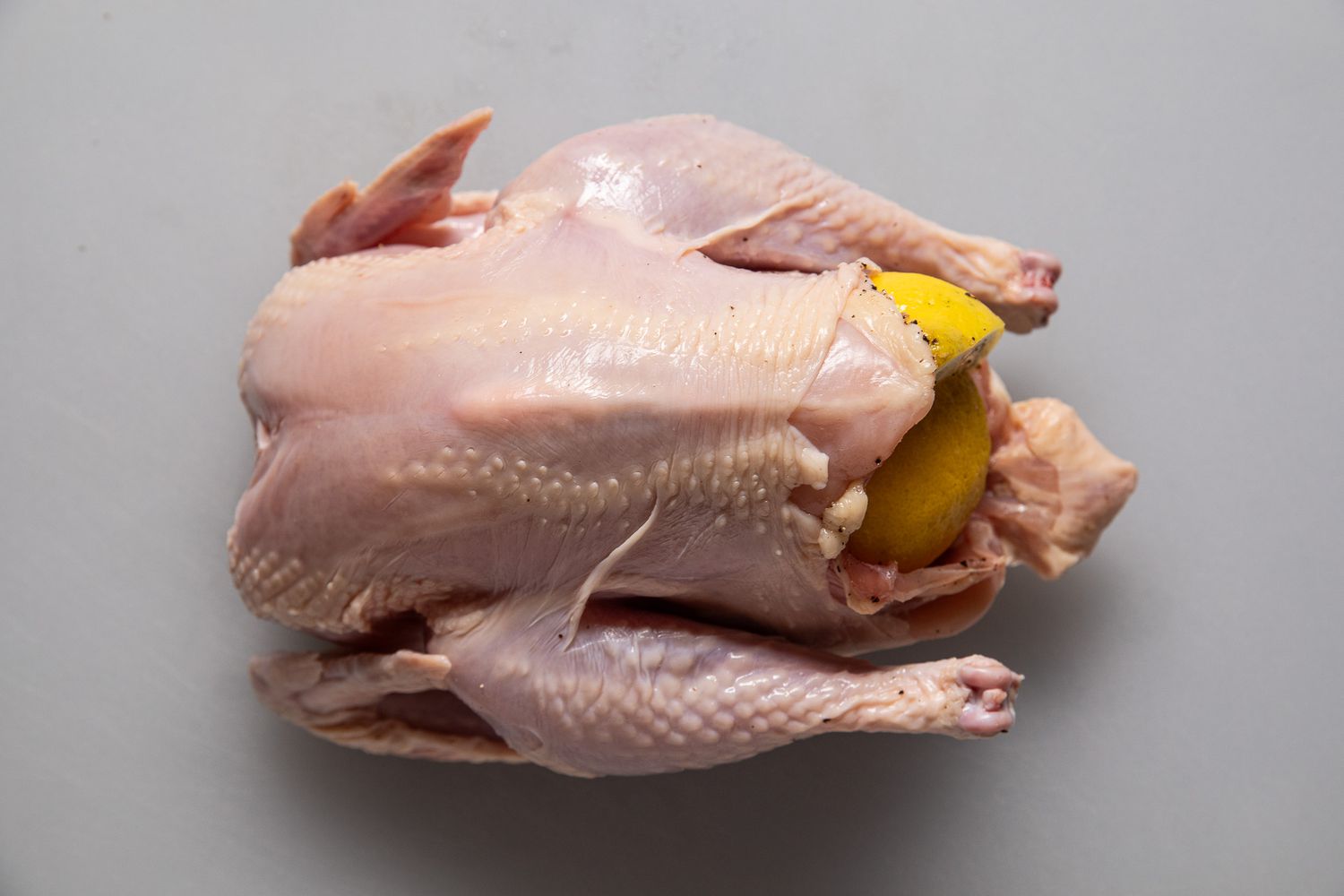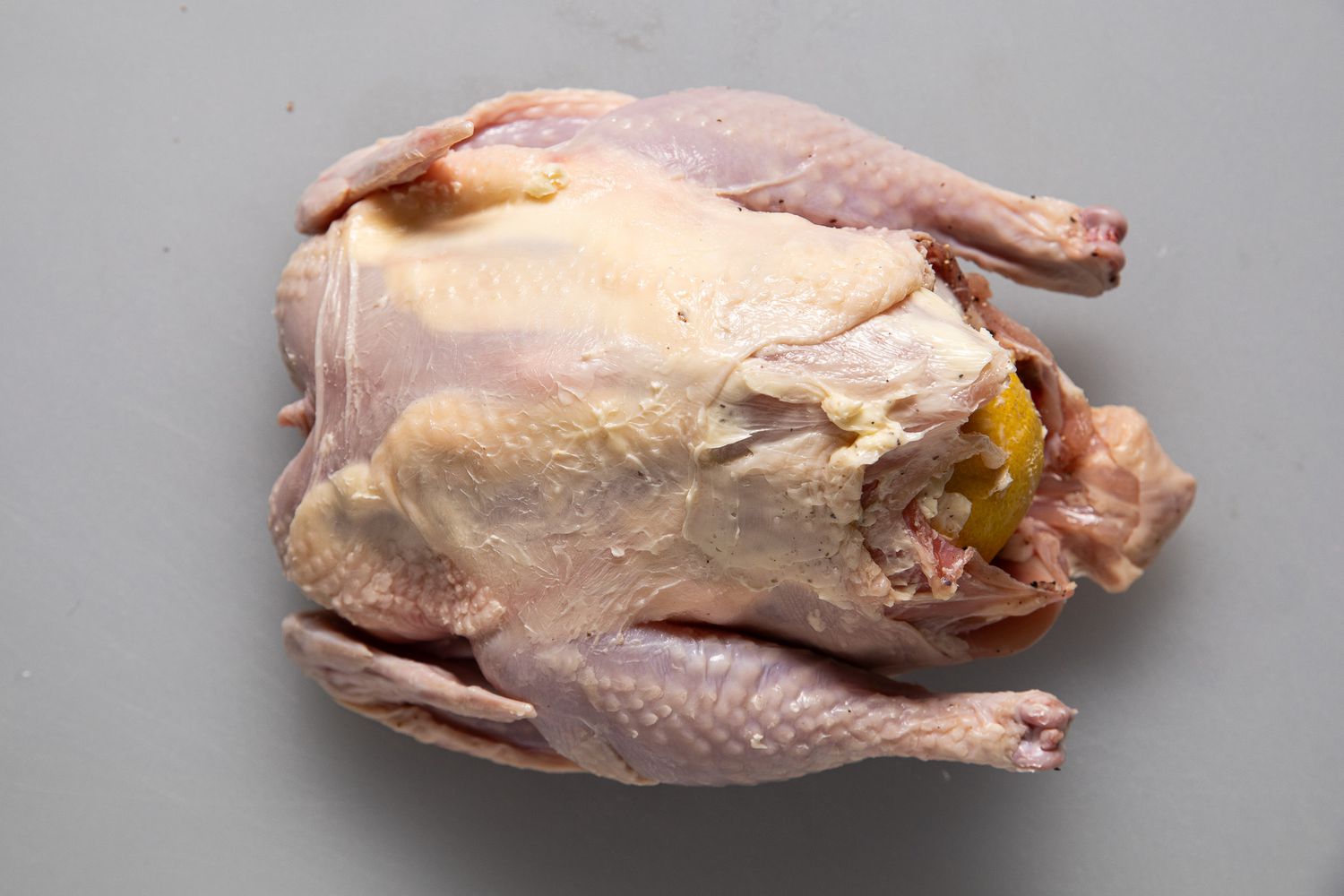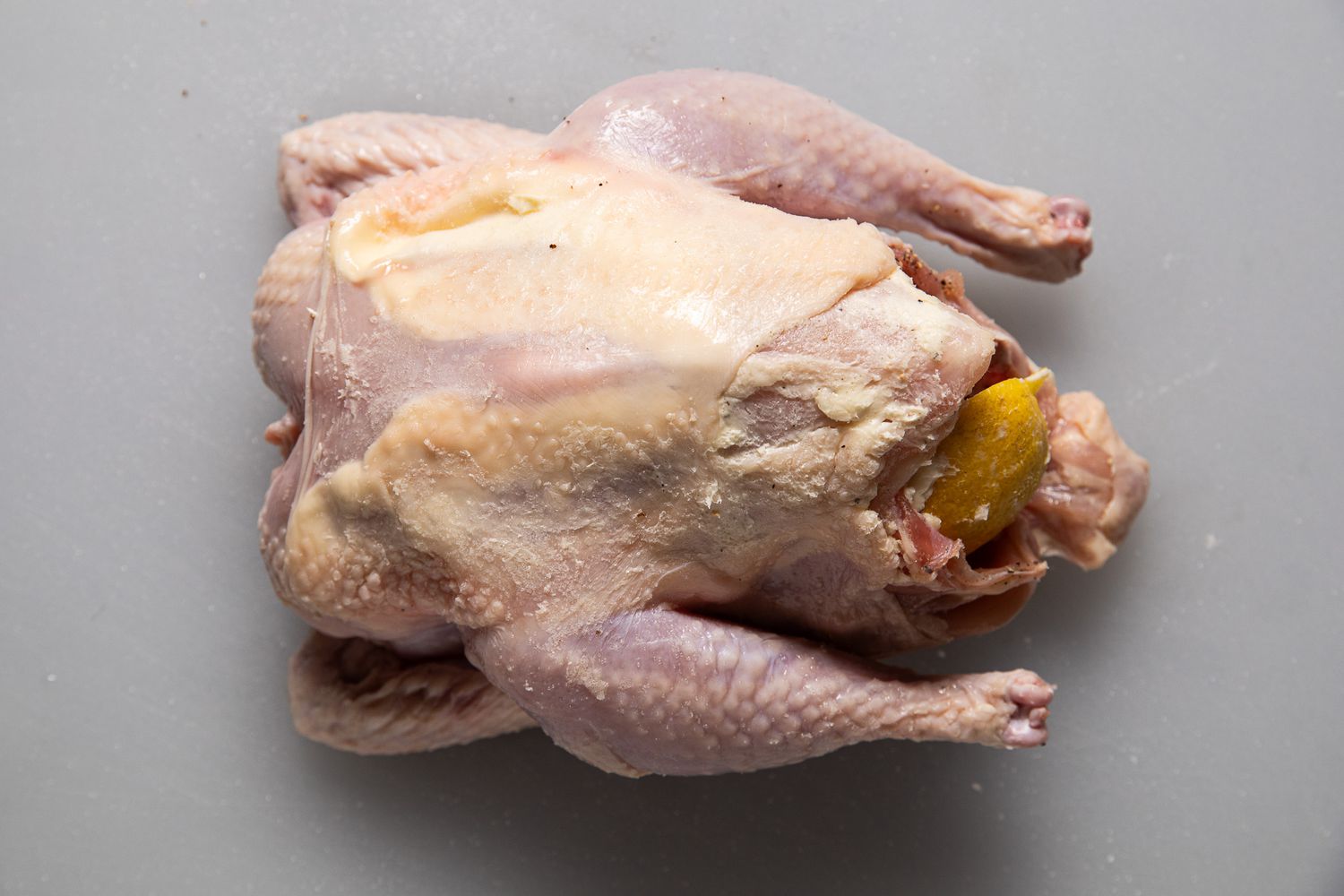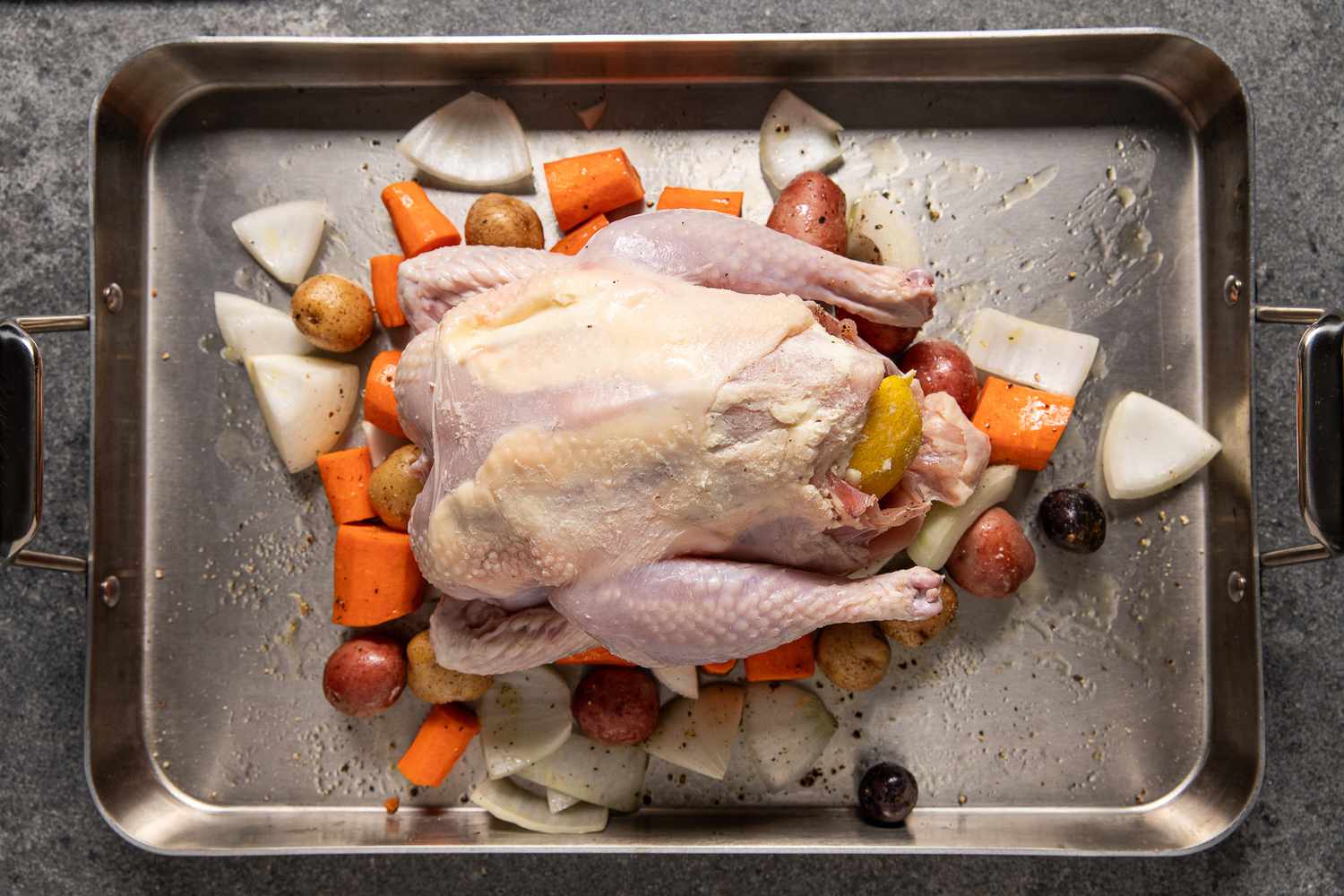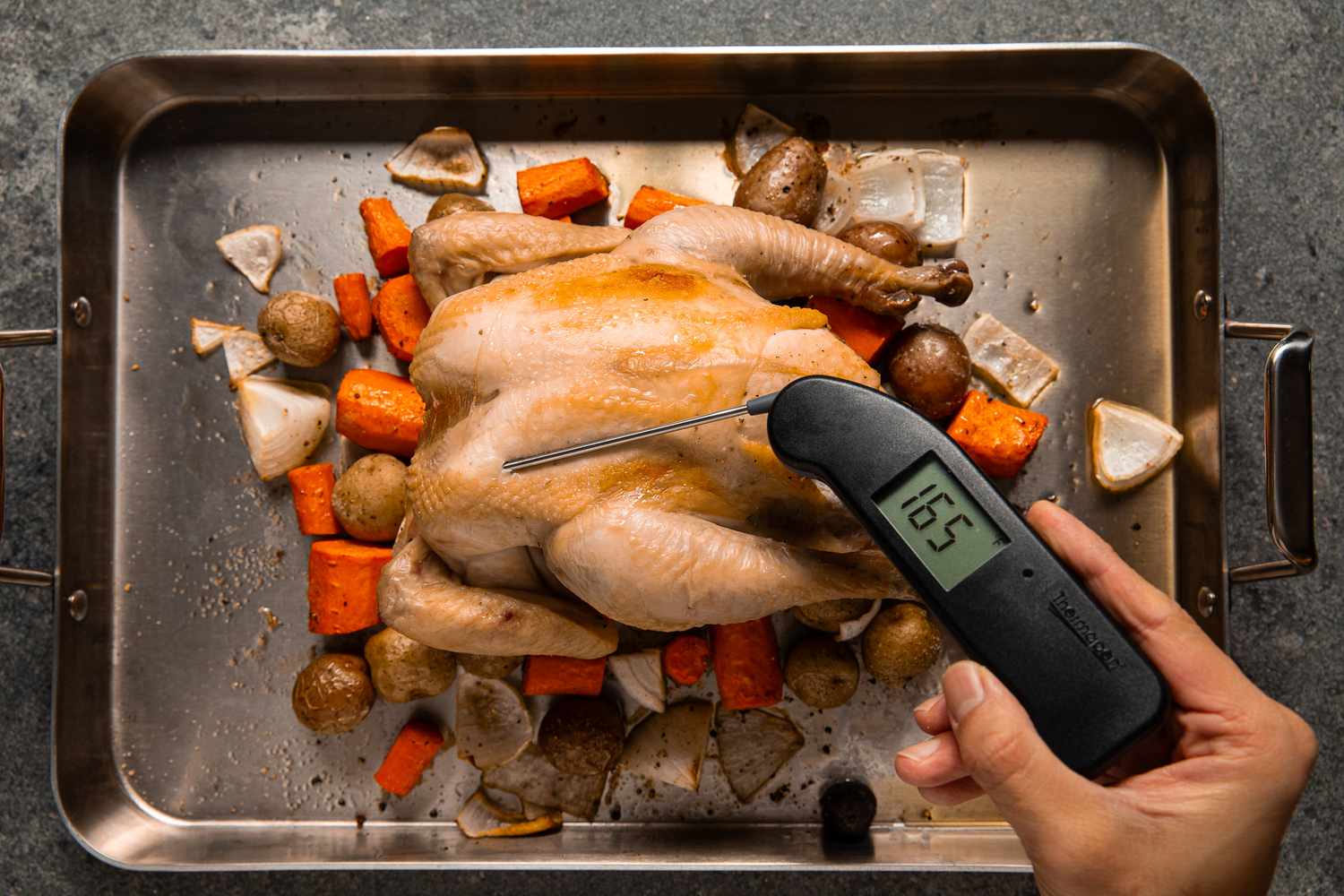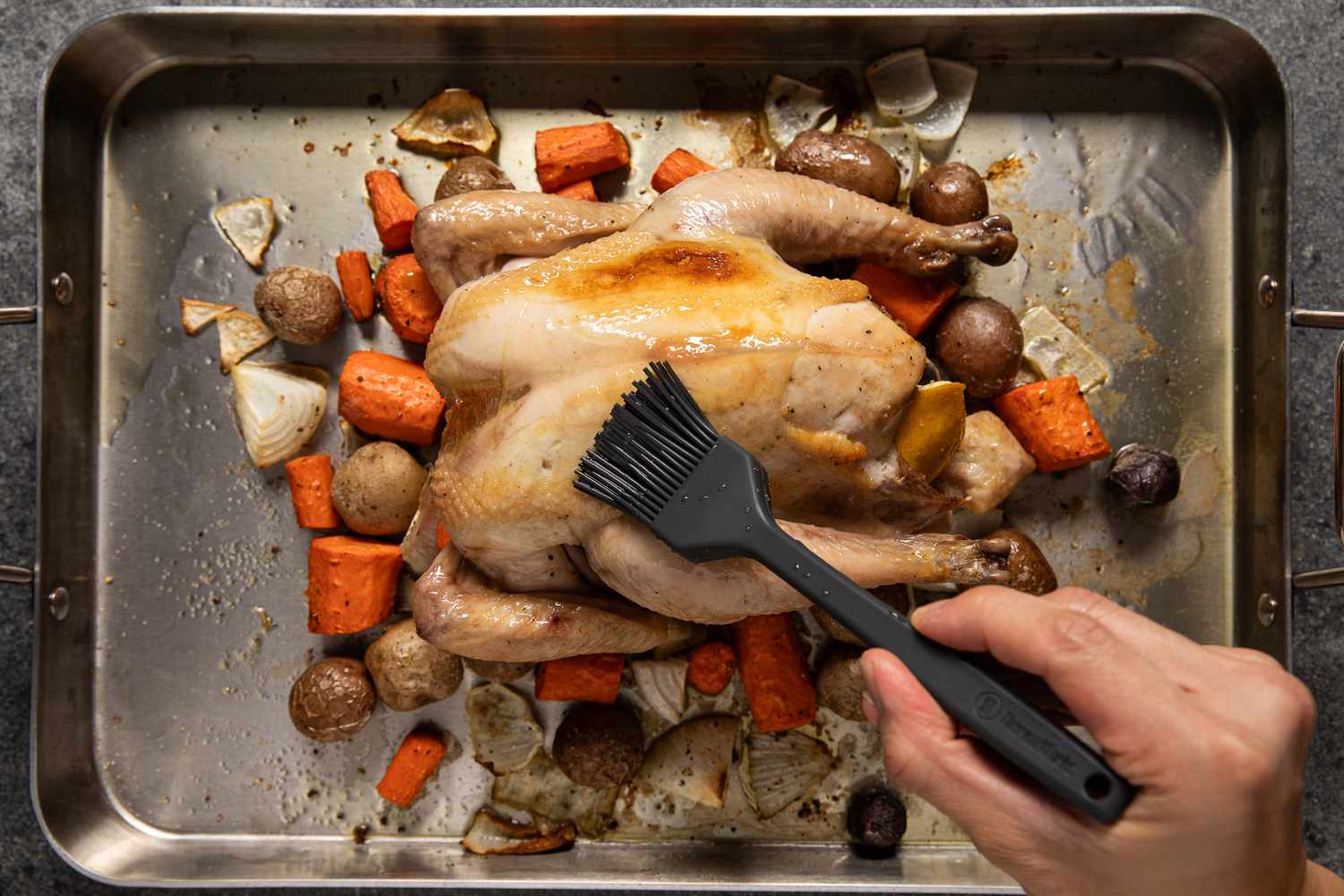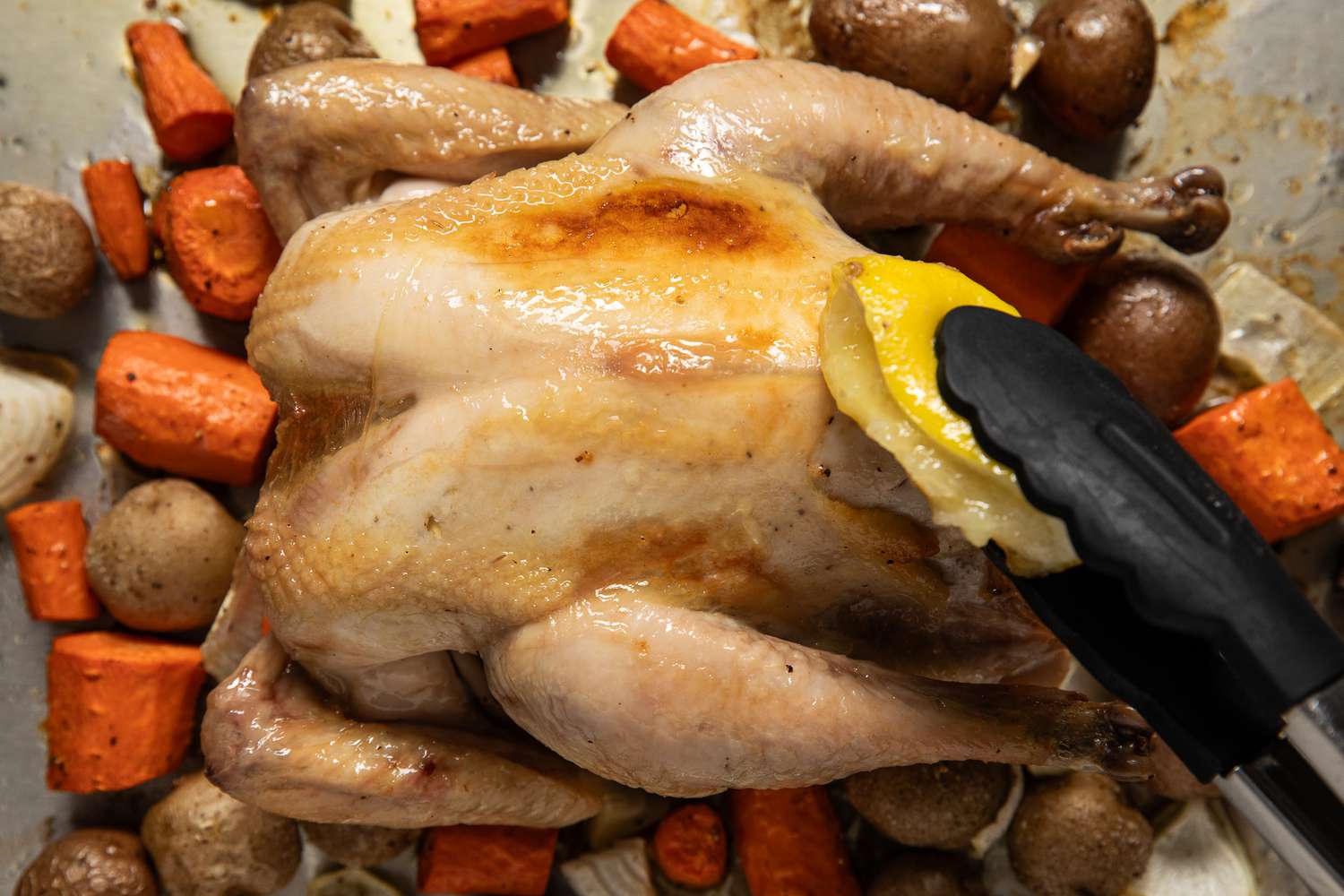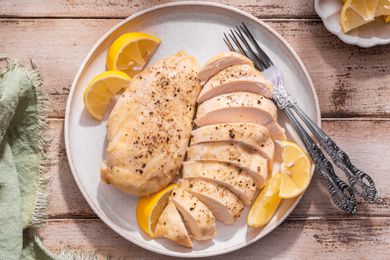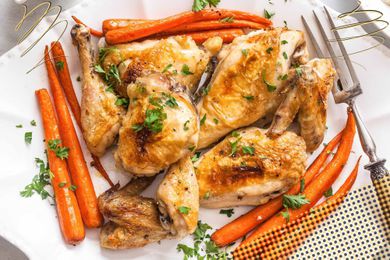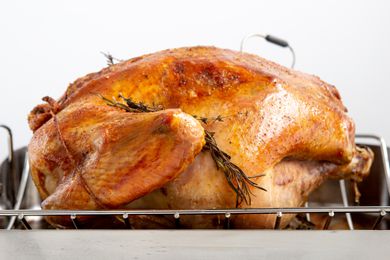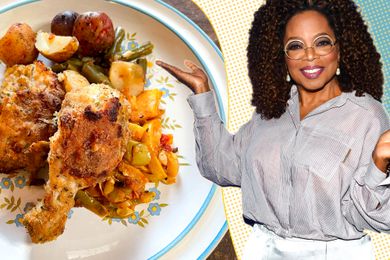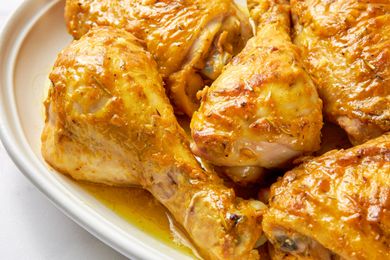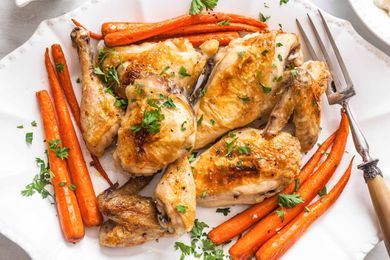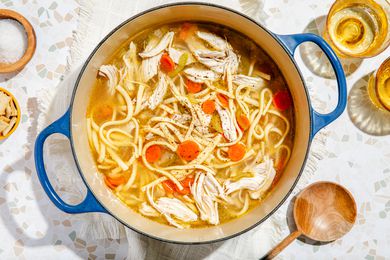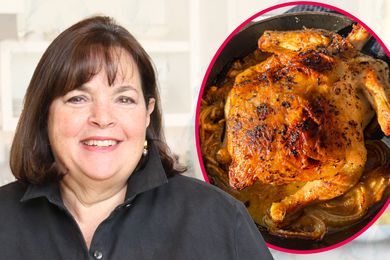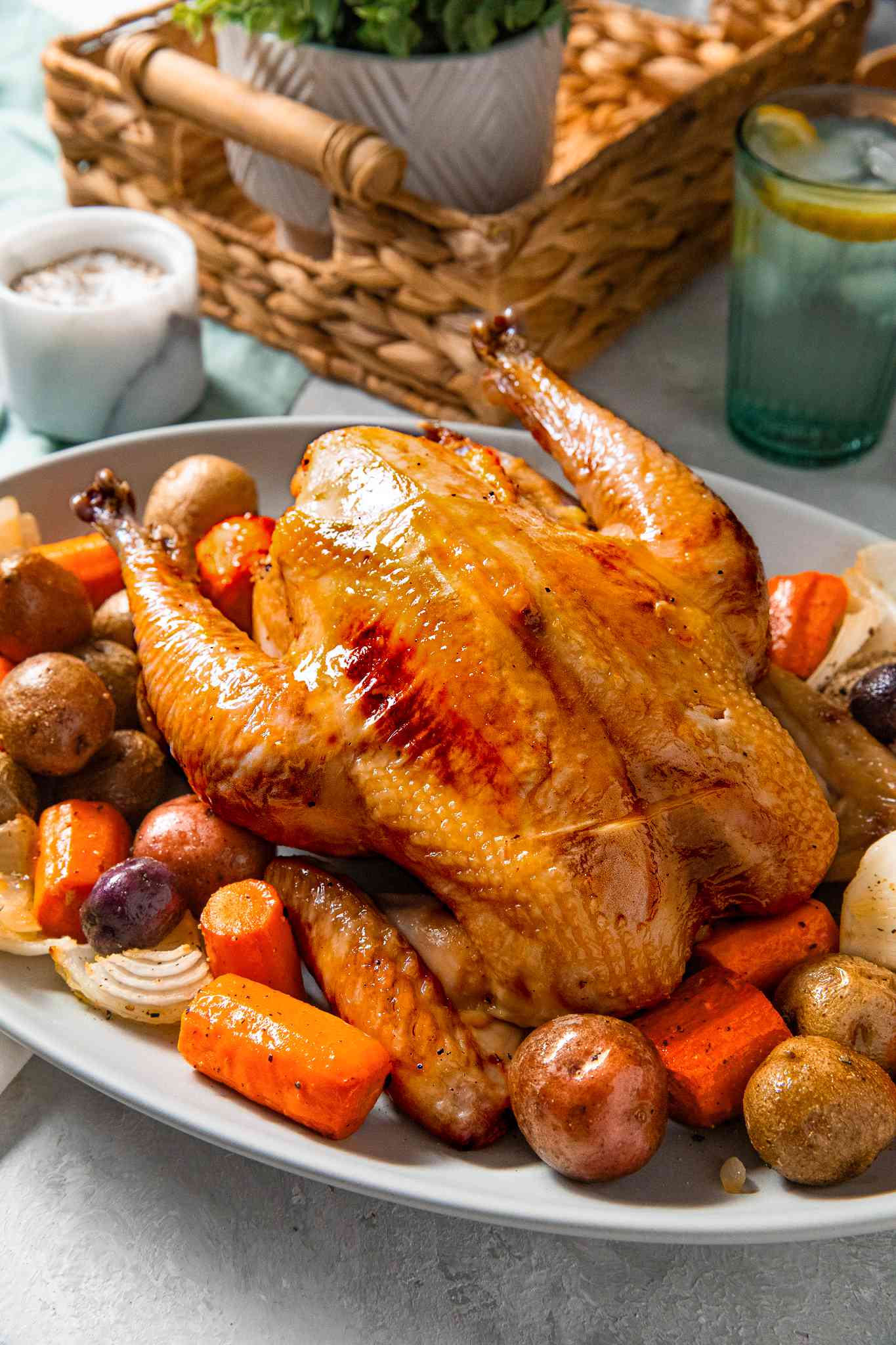
Simply Recipes / Frank Tiu
Few meals are as satisfying as a juicy roast chicken with schmaltzy roasted vegetables. To me, it is true comfort food. And while there are plenty of tricks for making an exemplary bird—wet brining, dry brining, spatchcocking—they all require some real forethought. And sometimes I just don’t have it in me.
While photos of perfect, golden roast chickens tempt me to try new-fangled tricks, I always default to my tried-and-true method without regret. This simple roast chicken is just that: simple. There’s no planning ahead beyond the cook time, and no special ingredients to hunt down. You can pick up a chicken from the grocery store, come home, and cook it. Easy as that.
No Bells and Whistles Required
The best thing about this recipe is its simplicity. That, and it yields a perfectly succulent roast chicken. Over years of roasting, I’ve found 400°F to be the just-right temperature for moist meat and lightly crisp skin with no need to baste or babysit.
Don’t have a roasting pan? No sweat, neither do I! You can use a Dutch oven (my favorite, 5-quart or bigger), big cast-iron pot, or rimmed baking sheet.
I like to roast chicken on a bed of veggies since it elevates the bird and helps it to cook and brown a bit more evenly. Plus, you can eat the schmaltzy vegetables as a side dish. Root veggies like carrots, turnips, and parsnips work well, as do potatoes, whole garlic cloves, big chunks of onion, fennel, and more. Even a large diced apple is nice. Use whatever you have on hand.
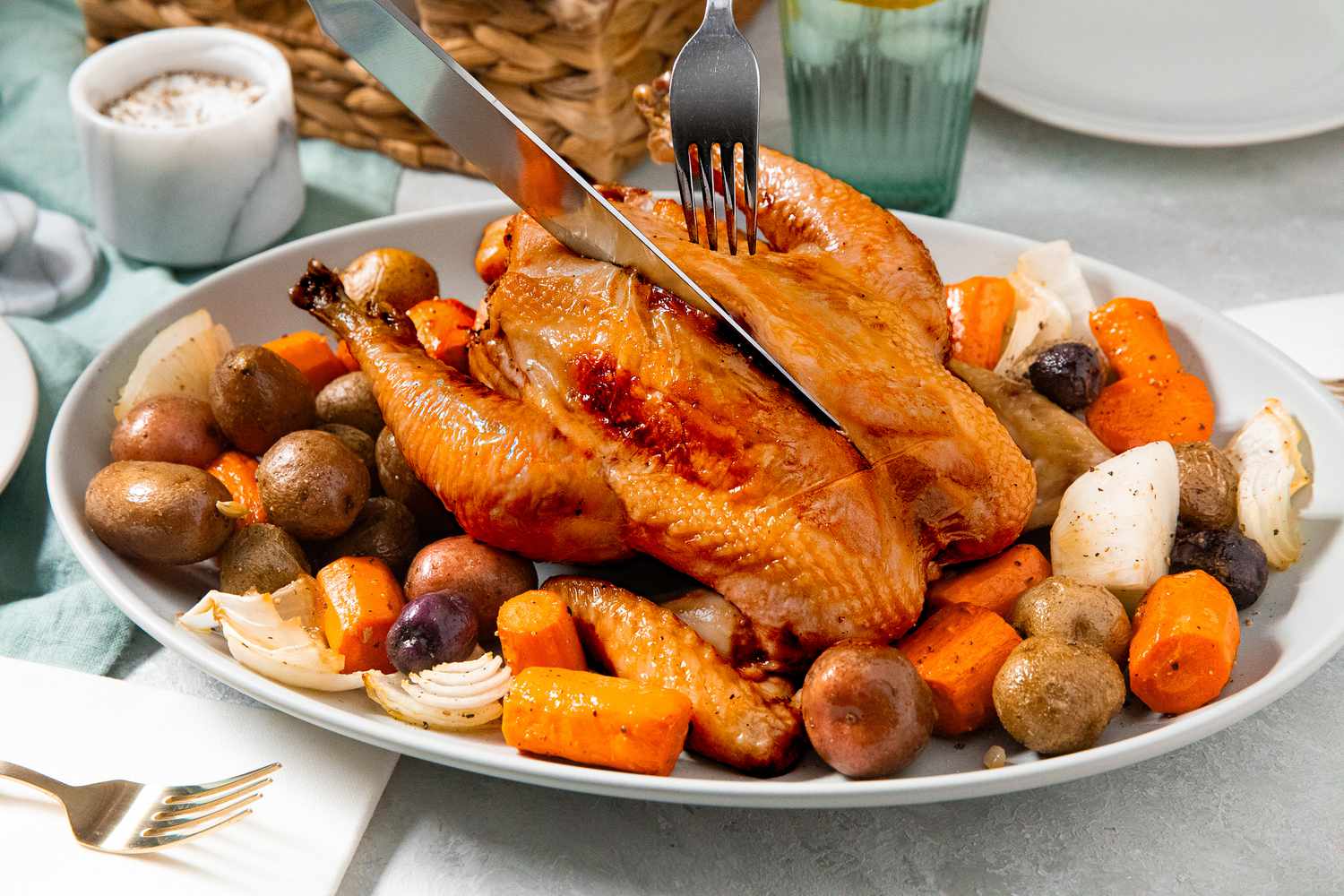
Simply Recipes / Frank Tiu
How to Make a Perfect Roast Chicken
While this recipe couldn’t be easier, there are a few aspects that are key to success.
- Start with a good chicken: Organic is ideal, and air-chilled is preferred. Four pounds or less means a more tender bird, but up to five pounds is fine. Make sure it’s fresh (check the sell-by date) and, if you’re starting from frozen, let it thaw completely in the fridge first (this can take up to 2 days).
- Season well: Don’t forget to season the cavity as well as the outside of the bird with salt. Stuffing the cavity with aromatics adds even more flavor.
- Watch the clock: The worst thing you can do for a chicken is overcook it. Use the calculation in the recipe below, but check it even earlier. The cook time can range depending on your oven.
- Use a thermometer: This is non-negotiable in my book. The old trick of waiting for the juices to run clear doesn’t always work, and a thermometer is the only way you’ll know if your chicken is safe to eat without cooking it to death.
- Give it a rest: Don’t skip the resting time at the end. Otherwise you’ll cut into a piping hot chicken and lose tons of moisture in the process, all while burning your fingers. Plus, it’ll give you the perfect amount of time to set the table, prep a salad, and pour wine.
- Make stock: Don’t toss out those bones! After dinner, pick off any excess skin and stick the whole carcass in a zip-top freezer bag. Freeze until you’re ready to make chicken stock.
For Bonus Points, Use Butter
If you’re in a rush or feeling lazy, you can skip the butter treatment. However, if you have an extra three minutes and don’t mind getting your hands dirty, it makes a real difference. As the butter under the skin melts, it bastes the meat for you, ensuring it is moist and flavorful.
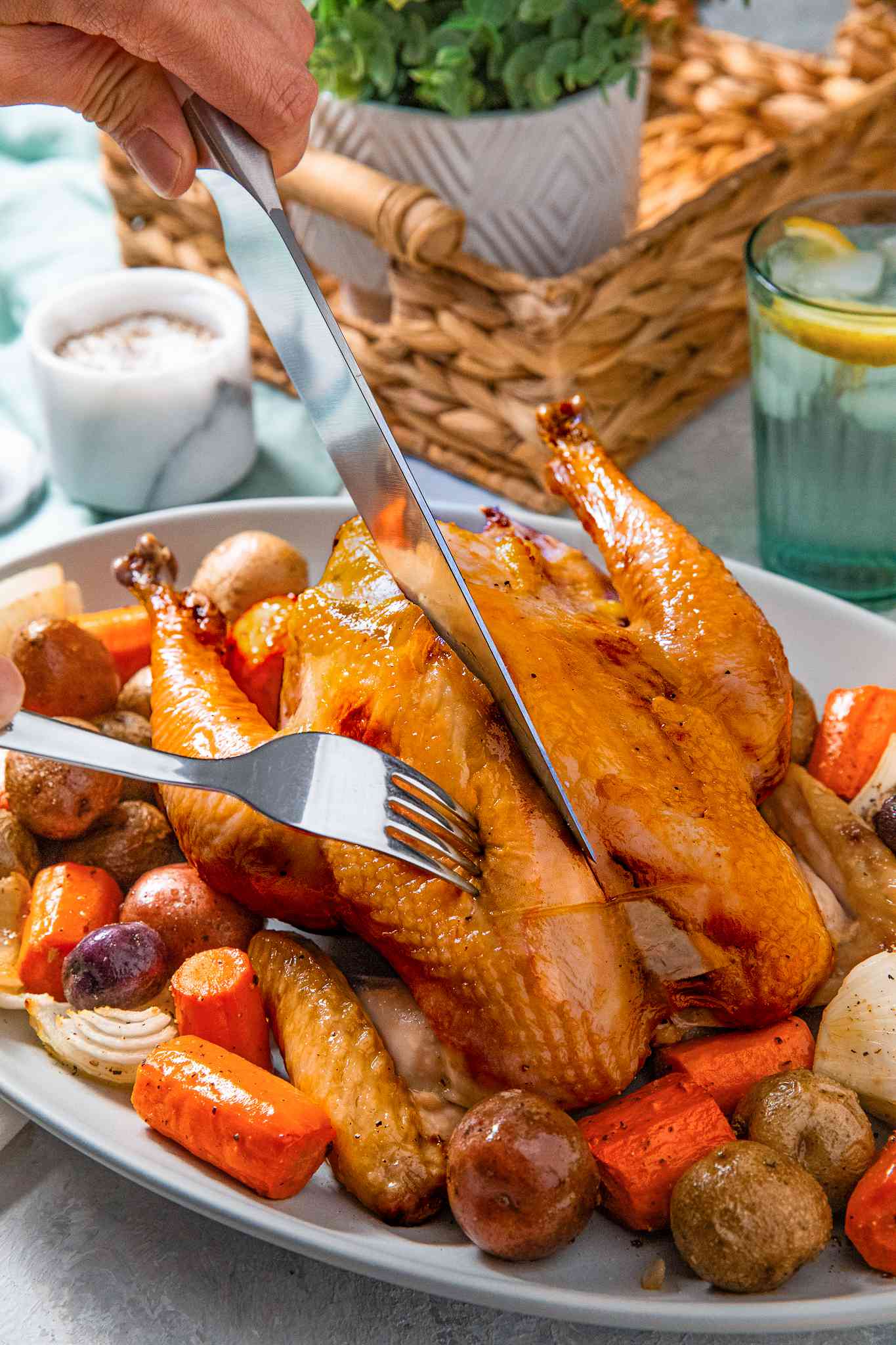
Simply Recipes / Frank Tiu
Recipes for Using Up Leftover Chicken
Simple Roast Chicken
Ingredients
-
1 (3 1/2 to 5-pound) whole chicken
-
5 cups roughly chopped vegetables (1 to 1 1/2-inch pieces), such as carrots, onions, potatoes, parsnip, fennel, butternut squash, or turnips
-
2 tablespoons olive oil
-
Salt and freshly ground black pepper
-
1 small lemon, halved, or 1/2 large lemon
-
1/2 yellow or white onion, peeled and cut into 1-inch wedges
-
2 sprigs rosemary or 1 small bunch thyme, optional
-
3 tablespoons butter, softened (optional)
Method
-
Preheat the oven to 400°F.
Arrange a rack in the center of the oven. Remove the chicken from the fridge, unwrap, and set it on the counter to warm up a bit.
-
Prepare the pan:
Add the roughly chopped vegetables to a Dutch oven, roasting pan, or rimmed sheet pan large enough to hold the chicken. Toss with the oil and season with salt and pepper. Spread out into an even layer. If you’re using a roasting pan or sheet pan, arrange the vegetables to be slightly larger than the chicken so it can sit on top.
![Seasoned chopped carrots, onions, and whole potatoes in a roasting pan for simple chicken roast recipe]()
Simply Recipes / Frank Tiu
-
Prepare the chicken:
Remove the giblets from the chicken cavity (if needed) and dump out any liquid. Pat dry inside and out with paper towels.
Generously season the cavity of the chicken with salt and pepper. Stuff with the lemon, onion, and rosemary or thyme, if using. If using the butter, gently separate the skin from the breast meat and smear the butter in between the skin and meat. Use any leftover butter on your hands and spread it on the outside of the bird. Season generously all over with salt and less generously with pepper. If you’re using a salt cellar, this will be about 3 good pinches; if you’re using a grinder, it’s about 8 full turns of the grinder. If you don't normally season your food this way, it's going to feel like more salt than you are used to using.
Tuck the wings under the body so they don’t stick out. Place the chicken breast-side-up on top of the vegetables.
Simple Tip!
Be sure to keep track of everything that comes in contact with the raw chicken and its juices. Wash your hands often and clean any surfaces, the sink, and any tools thoroughly after use.
![Paper towel use to remove excess moisture from whole chicken for chicken roast recipe]()
Simply Recipes / Frank Tiu
![Whole chicken stuffed with halved lemon slices for simple roast chicken recipe]()
Simply Recipes / Frank Tiu
![Whole chicken after smeared with butter for roasted chicken recipe]()
Simply Recipes / Frank Tiu
![Whole chicken after buttered and seasoned for simple roasted chicken recipe]()
Simply Recipes / Frank Tiu
-
Roast:
Place the chicken in the oven and roast until the internal temperature reads 165°F, about 15 minutes per pound. Depending on the weight of your chicken, the total cook time will be between 50 minutes and 1 hour and 40 minutes.
Start testing for doneness 10 minutes before your target time, then every 10 minutes after that as needed. Use an instant-read thermometer inserted in the thickest part of the breast (without touching the bone) as well as a thigh to test for doneness. Both temperature readings should register at least 165°F per the USDA.
Simple Tip!
Honestly, I cook my chicken until the breast meat reads 155 to 160°F in the thickest part (the dark meat should read at least 165°F). As the chicken rests, the internal temperature will continue to rise to 165°F, and that way I don’t risk overcooking the white meat. If you’re nervous about it, just cook until you reach the full 165°F.
![Seasoned whole chicken placed on seasoned vegetables in the roasting pan for roast chicken recipe]()
Simply Recipes / Frank Tiu
![Electric thermometer checking internal temperature of the roasted chicken. Thermometer reads 165F.]()
Simply Recipes / Frank Tiu
-
Rest and serve:
Baste the chicken with the pan juices and let it rest for 20 to 30 minutes before carving and serving (no need to cover). Use the lemon from the chicken and squeeze it over the vegetables. Serve alongside, if desired.
Leftover roast chicken will keep for up to 4 days in an airtight container in the refrigerator.
Love the recipe? Leave us stars and a comment below!
![Silicone basting brush used to baste roasted chicken with pan juices]()
Simply Recipes / Frank Tiu
![Lemon half squeezed onto the simple roasted chicken and vegetables using a pair of tongs]()
Simply Recipes / Frank Tiu
| Nutrition Facts (per serving) | |
|---|---|
| 627 | Calories |
| 34g | Fat |
| 23g | Carbs |
| 60g | Protein |
| Nutrition Facts | |
|---|---|
| Servings: 4 to 6 | |
| Amount per serving | |
| Calories | 627 |
| % Daily Value* | |
| Total Fat 34g | 43% |
| Saturated Fat 9g | 43% |
| Cholesterol 183mg | 61% |
| Sodium 259mg | 11% |
| Total Carbohydrate 23g | 9% |
| Dietary Fiber 7g | 26% |
| Total Sugars 9g | |
| Protein 60g | |
| Vitamin C 108mg | 540% |
| Calcium 105mg | 8% |
| Iron 4mg | 22% |
| Potassium 938mg | 20% |
| *The % Daily Value (DV) tells you how much a nutrient in a food serving contributes to a daily diet. 2,000 calories a day is used for general nutrition advice. | |
